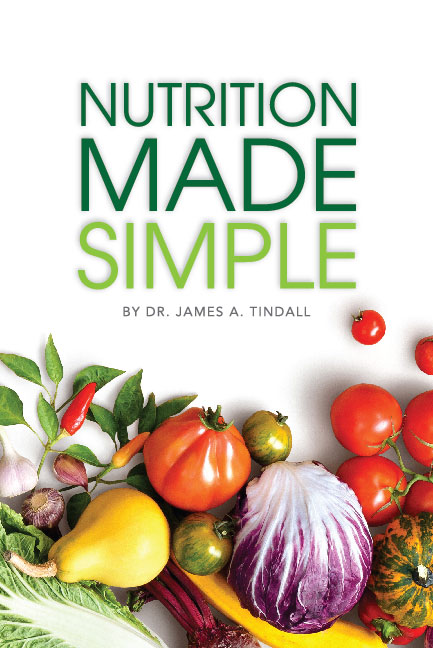For many, the term diet is a dreaded word. Here, we use the term in reference to beginning a good nutritional plan. A meal plan combining the food you enjoy with your weight-loss goals. The key to the healthiest lifestyle is simply good nutrition, moderation in eating the foods you like and a combination of exercise. All of our diets and recommendations are based by scientific research, years of study, and the personal experiences of not only our experts, but also those whom we have helped.
The diet (menu) plans from MyHealthandFitness let you eat the types of foods you enjoy. And, by understanding a little about nutrition and what to expect, you will be able to lose weight, firm up, and be healthy. Our goal is to help you do this.
Adhere to the following 10 steps to get started on a new and healthy lifestyle. In the beginning it may seem a little overwhelming, but its a matter of developing good eating habits that change the way you eat. Diets will not do this and is why all diets fail. Our method is scientifically proven and successful.
Advertisement: Amazon (click on photo for more info)

Read our web site sections FAQ, Diet & Nutrition, and Health & Wellness. Also, explore the many health and fitness articles on our site. New ones are posted each day. This will help build a foundational knowledge of nutrition so that you are your own best expert. Remember that a program that works for someone else may not work for you.
Before you begin any diet or menu plan, make an appointment with your physician for a complete physical and obtain his or her approval. He or she will assess your current health and look for a variety of pre-existing or hereditary conditions. Some of these may include: heart, liver or kidney disease, diabetes, cholesterol, predisposition to gout, and others. However, many physicians will not measure blood glucose levels unless you request it so, you should ask for an EKG and a six hour glucose tolerance test with insulin measurements.
You should also ask for a complete blood panel that includes lipids (fats) and thyroid function. Doing this will preclude one from later blaming a diet for something you may already have. Conducting such tests after starting a diet is counter productive. The reason is because you want a base measurement of everything before you begin. For example, if you have high cholesterol, that is something you would like to know. Otherwise, once you begin a new nutritional regimen, there will likely be a change in this parameter. It would be wise to know if your new diet and menu plan(s) was a cause in its alteration. This is also true of other health problems such as those mentioned.
Next, with your physician’s approval, you may begin a new nutritional regimen.
Please visit our “Tools” section and measure yourself for BMI, body fat, ideal body weight, and calorie requirements. This will give you a good foundation of where you currently are based on the norm and how many calories you should eat each day. However, please remember that some persons may not fit the norm due to large muscle mass and other factors. Use these numbers only as a base guide tempered with reason. But, don’t make excuses. If you’re too lean or overweight, admit it to yourself. The more accurate and honest you are with this data, the quicker you’ll make improvements.
Try our sample menus first. They will give you an idea of what a good menu should be comprised of. They will also help you develop good habits by following a good nutritional regimen. Learn to count grams of carbohydrates, fats, and proteins in your diet. Remember that 1g or carbohydrate or protein is equal to 4 calories and 1g of fat is equal to 9 calories. Knowing these simple facts can help you learn to control your carbohydrate and fat intake. Pay particular attention to the information in the Burning Fat subcategory in our on this web site. However, don’t be a scale watcher or try to count every single calorie. Doing so will cause you to go nuts and is also counterproductive. Simply get a good idea of how many calories you need each day and a daily average of your intake. Time, moderation, and exercise will balance this so that your newly developed good habits will prevail.
In addition to a good nutritional plan, you should also seek information about, and put yourself on, a good nutritional supplement program. You can obtain the latest scientific information on both of these in our Supplements section and also, in our Online Store under supplements. Combining a good nutritional plan with the appropriate supplements and exercise will help you become the fittest and healthiest you can be.
Use Moderation: Eat only as much food as it takes to satisfy your daily caloric needs. If you feel that you may eat too much, drink 1-3, 8 ounce glasses of water before a major meal to get an ‘I’m full” signal to your brain. Remember that nutrition is long-term. If you eat a few extra calories today, but a few less tomorrow, everything will balance out. But, if you constantly eat too few calories, you’ll lose weight and if too many, you’ll gain weight. For example, eating an extra 100 calories per day for one year will cause a 10 pound weight gain.
Don’t let yourself get too hungry, but don’t stuff yourself either. Adhere to the snack schedule in the menus and try to fuel your body when it needs it. Create your own snacks, which could theoretically be any type of food (just avoid sugars excepts as treats for your hard work). For example, have a slice of roast beef, chicken, turkey breast, or a can of tuna mixed with mayonnaise; a granola bar, small fruit, or cup of yogurt. Its not a matter of being totally rigid, but of making good food choices that fit into your menu without exceeding the caloric intake and being flexible. If you find yourself in the predicament of going to a fast-food establishment, opt for grilled chicken, a salad, and a diet drink or glass of water in lieu of a combo-type meal that is very high in fat, carbohydrates, and calories. The primary emphasis would be to keep your carbohydrate intake in the form of simple or refined sugars low. Try to avoid candy, soda pop, donuts and similar products most of the time.
Combine your new nutritional plan with a good exercise regimen. Search our web site for information on all of this, particularly our “Workout” section. We can help you achieve your goals. The MyHealthandFitness system works and works very, very well. It is not always easy, nor is there a magic pill or elixir. You must desire to make a change. If you do, you will be rewarded with that which you seek. MyHealthandFitness is not into fads or quick weight loss, which is usually due to loss of water only; we are into proven results and in changing eating habits so that the rest of your life will be as healthy as possible. We are here to help on every step of your journey.
Finally, keep a journal from the very first day. Track your weight and progress. Write down your results and take pictures at the beginning and at least every 3-4 weeks to see how you change. The old adage of “A Picture is Worth a Thousand Words” is very true in this case. There is nothing better than a visual picture of where you were before and how far you’ve come. Now, reflect on your goal(s) and begin. Once you have tried some of our sample menus, you’re ready for the longer term diet plans and fitness and workout programs. If you need help or advice in any area, please contact us or one of our experts. We wish you the greatest success on your journey.






